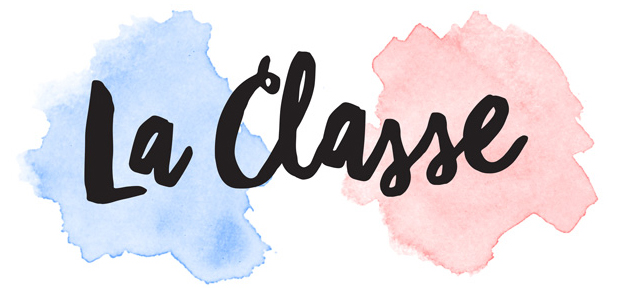Language is a dynamic and ever-evolving entity. It goes beyond grammar rules and formal phrases. Native speakers often use informal language, slang, and colloquial expressions in their daily conversations. When learning a language like French, understanding these informal aspects is crucial to truly connect with native speakers and grasp the nuances of the culture. In this article, we will explore the world of French slang and colloquialisms, shedding light on the less formal side of the language. Get ready to uncover the colourful and lively world of informal French expressions.
Social Dynamics and Interaction
The Informal "Tutoyer" vs. "Vouvoyer"
The choice between "tutoyer" and "vouvoyer" is akin to understanding France's unwritten rules of social interaction. When you grasp the significance behind this choice, you'll navigate conversations with more ease. "Tutoyer" (using the informal "tu" form) suggests familiarity and camaraderie, while "vouvoyer" (using the formal "vous" form) implies respect and distance. Mastering the art of choosing the right form is vital to building relationships and engaging with French speakers in a culturally appropriate manner.
The Fluidity of Gestures and Body Language
French communication is not confined to words alone; gestures and body language play a pivotal role in conveying meaning. French speakers often use their hands, facial expressions, and body movements to complement their words. Learning to interpret these non-verbal cues is crucial for understanding the unspoken language of the French. It's a testament to the richness of French communication that extends beyond vocabulary and syntax, adding depth and authenticity to conversations.
Linguistic Creativity
The Versatility of Verlan
One of the first things to understand when exploring French slang is "Verlan." Verlan is a form of wordplay where syllables are reversed, creating a new word. For example, "femme" becomes "meuf" in Verlan. This linguistic phenomenon adds layers to French slang, and learning Verlan can be akin to mastering a secret code. Verlan isn't just about reversing syllables; it's a linguistic puzzle that reveals the creativity and adaptability of the French language, giving you a glimpse into how native speakers play with words to create a unique subculture of communication.
The Impact of Regional Variations
France's cultural and linguistic diversity is deeply reflected in its regional variations. Each region boasts its own unique slang and colloquial expressions, adding layers to the French language. What's considered common slang in Paris might bewilder someone in Marseille. By exploring these regional differences, you'll gain profound insights into the rich tapestry of French culture. You will also discover how regional languages, such as Breton, Occitan, or Corsican have significantly influenced the French language.
The Internet and Text Messaging Slang
In the age of digital communication, internet and text messaging slang have become a pivotal part of the French language's evolution. Understanding these abbreviations and expressions, such as "lol" or "mdr" (meaning "dying of laughter"), opens doors to engage in casual online conversations seamlessly. Whether you're participating in social media discussions or texting with French-speaking friends, familiarising yourself with these digital expressions allows you to navigate the virtual French-speaking world with ease, much like a native speaker.
The Art of Swearing
While it's imperative to approach this topic with caution and sensitivity, being aware of French swear words is a part of understanding the language's informal side. French profanities are seldom used in polite society but can crop up in informal settings. Acknowledging them equips you with the knowledge to recognise and avoid uncomfortable situations, ensuring that you're prepared to navigate the full spectrum of informal language, even if you choose not to employ it.
Cultural Expressions and Everyday Life
Food-Related Expressions
French culture is deeply intertwined with food, and so is its slang. Expressions like "avoir la patate" (having energy) or "raconter des salades" (telling lies) draw inspiration from culinary elements, providing a unique insight into the French way of life. French people's love for food goes beyond the dining table; it seeps into their everyday language. "Avoir la patate" is like saying, "I've got the energy of a potato," which might sound strange in English, but it's a playful way to express your vivacity in French. "Raconter des salades" brings a touch of humour, as if the person telling lies is serving up a plate of untruths.
The Versatile "Bof"
The word "bof" might just be one syllable, but it conveys a range of sentiments. It's used to express indifference, uncertainty, or even mild disappointment. Depending on the context, it can mean, "I don't know," "I don't care," or "Not great." "Bof" is like a linguistic chameleon, adapting to the conversation's emotional tone.
Exaggeration with "Carrément"
"Carrément" is a versatile expression that goes beyond just emphasis; it's a hallmark of French communication. French speakers frequently employ it to convey strong agreement or disbelief. It adds a layer of enthusiasm to conversations, making interactions livelier and more engaging. For instance, "C'est carrément incroyable" signifies "It's absolutely incredible" and showcases the speaker's fervent reaction, revealing the passion and emotions that can underlie casual discussions.
The Intricacies of "Ras-le-bol"
"Ras-le-bol" is more than just a phrase; it's a window into the emotional landscape of everyday life in France. When used, it vividly portrays frustration or weariness. Whether you've reached your limit with the weather, your job, or even a conversation, this expression succinctly captures the feeling of being fed up. Learning to recognise and use "ras-le-bol" allows you to better empathise with the subtleties of everyday conversations and the emotional experiences of native French speakers.
Conclusion
Learning French slang and colloquialisms is like revealing a hidden treasure trove of language and culture. It offers insight into the soul of the French people, their humour, their frustrations, and their idiosyncrasies. While it's necessary to master formal French for academic and professional purposes, embracing slang and colloquial expressions is equally vital for genuine, everyday communication with native speakers.
YOU MAY ALSO LIKE :




